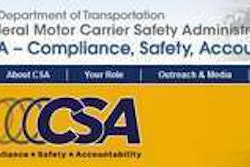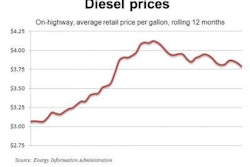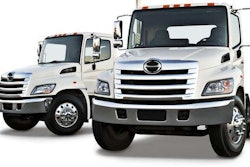Frozen Food Express Industries Inc. on Wednesday, Oct. 5, announced that it will restructure its dry freight service offerings. The Dallas-based company says it will continue to offer dry freight options in certain lanes via its temperature-controlled trailers, but that it no longer will provide dry freight services via a dedicated fleet of dry van trailers.
“Streamlining our dry freight services will greatly reduce, but not eliminate, our ability to handle dry freight,” says Russell Stubbs, president and chief executive officer. “We will continue to move dry freight via our temperature-controlled trailers, as it meets the needs of customers and provides a profitable contribution margin. At the same time, these actions should greatly improve our operating efficiency and allow us to focus in other areas where we offer differentiated service.”
Stubbs says the company is notifying customers that are impacted by this change. “We will do all we can to make this a smooth transition for them,” he says. “Regrettably, the economics of the transportation world do not promote maintaining equipment offerings in noncore lower-margin services. This will allow us to concentrate on core services that allow better margins due to product differentiation.”
The plan includes the sale of about 435 dry van trailers, which account for all of the company’s dry van trailer fleet. Frozen Food Express will maintain its current fleet of about 3,250 leased and owned temperature-controlled trailers to provide truckload, intermodal and less-than-truckload services
The company also intends to reduce its tractor fleet by about 290 tractors during the fourth quarter as a result of the reduction in the dry van services. Sales of these tractors and trailers are expected to be completed during the fourth quarter of 2011. The company will use the proceeds of these sales, which it anticipates to be about $15.5 million, to reduce debt. The company expects to record a one-time charge to reflect the costs related to exiting the dry van service during the fourth quarter of 2011.
In an effort to reduce overall tractor fleet age, Frozen Food Express also will trade an additional 240 of its oldest tractors for new units, which will reduce the average fleet age significantly. “Fleet age is one of the largest drivers of cost in our company,” Stubbs says. “The cost to maintain an aged fleet has seriously deteriorated our operating results in 2011 and had to be addressed. Due to higher maintenance costs, loss of warranty and reduced fuel efficiency, older model tractors cost considerably more to operate than newer models. Additionally, a younger fleet significantly improves driver morale and retention, which is an industrywide challenge.”











